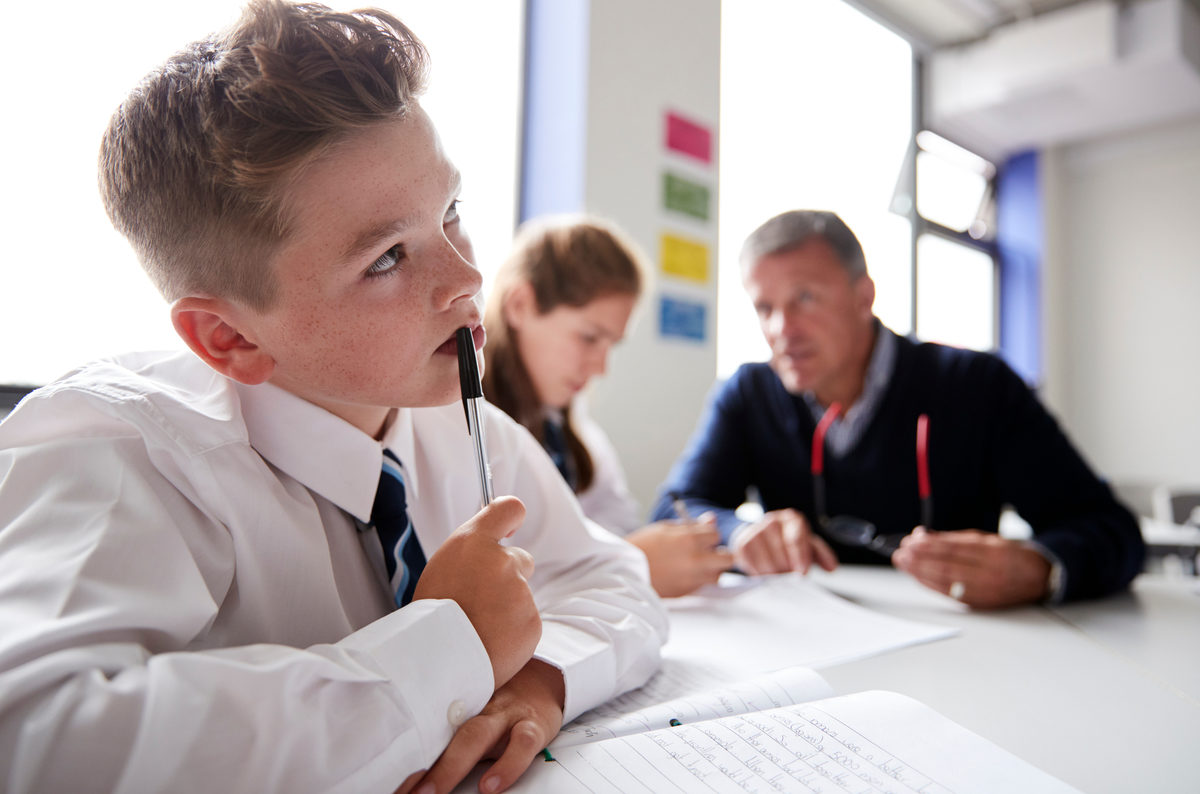Choosing your child’s school is one of the biggest decisions you’ll ever make as a parent.
You need to think about their education and the experience they’ll have with teachers and other students. Other important factors are their class sizes and extracurricular options.

If you’re not happy with public school and want a better option for your child, it’s worth looking into private school options. But, private schools aren’t for everyone, and the decision to change schools shouldn’t be taken lightly.
Let’s look into the pros and cons of a private school so you can make the right choice for your child.
The Pros and Cons of a Private School Education
There are many major differences between public and private schools. Let’s have a look at some of them.
Pro: A High-Quality Education
Private schools pride themselves on their excellent curriculum. If your child isn’t challenged in her current school, switching to a private school with higher standards may be what she needs.
If you’re looking for a private school for a preschooler, just go online and search “prep school near me.”
Con: Expensive
The cost of private school seems to increase every year. It’s obviously hard to pass up the free option of public school, but you can’t put a price on your child’s education.
If your child still has years left of school, be sure you’re ready to make those high tuition payments for a long time. Many private schools do offer scholarships that you can check out.
Pro: Smaller Class Sizes
If not enough face-to-face time with teachers is making school hard for your child, finding a private school with smaller class sizes may help. Private schools can usually also offer the benefit of a more personalized education so that you can be sure your child is getting what he needs.
Con: Teacher’s Don’t Need to be State Certified
In public schools, teachers have to be certified, have a relevant degree, and logged teaching hours before they’re allowed to be hired. Since private schools don’t use state funding, they don’t have these requirements.
Private schools can decide who to hire based on whatever factors they want, so the qualifications aren’t always as strict.
Private school teachers are also usually also paid less than public school teachers. Of course, this doesn’t mean that they are not qualified. But you should do some research to make sure the teachers at the school you’re exploring are top-notch.
Pro: Better Resources and Technology
Private schools can use their tuition costs on better supplies, books, and computers. These resources can definitely help your child’s education and give her the opportunity to learn at a higher level.
Con: Less Diversity
Going to school with kids from other cultures is important. Public schools are cultural melting pots, but private schools can lack diversity. Your child may miss out on a beneficial experience at a private school.
Before making the switch, it’s important to check the school’s cultural makeup. If there isn’t diversity, try to find other ways your child can get to know people from different cultures.
Pro: Established Alumni Network
When applying for a college or job, having a private school on a student’s resume can help him if there are any alumni at the place where he is wanting to apply. Private school alums are usually proud of their school and want to students out.
Con: Fewer Extracurricular Activities
Not all private schools have sports teams and other extracurricular activities. If this is an important factor, you might want to stay at a public school.
Another option is to find other places that your child can get involved in sports, music, and art outside of school.
Pro: High College Acceptance Rates
Private school students statically do well getting into a credible college. According to a recent Gallop poll, 85% of students from independent schools go to college after high school, as opposed to 69% from public schools.
Con: High-Pressure Environment
Private schools are usually more competitive than public schools, so some students go through burnout. Make sure you consider whether your child thrives under high-pressure or not.
Since most private school students come from wealthy families, there is also pressure to keep up. Every school will have social pressure, but it’s important to realize that it could be more intense at a private school.
Pro: More Parent Involvement
The American Institutes for Research reports that parents are more involved in private schools. They attend more PTA meetings, fundraisers, parent-teacher conferences, and other events.
If you’re hoping to be more involved with your child’s education and get to know other parents, a private school may offer more opportunities for you.
The Deciding Factor
Now that we’ve gone over the pros and cons of a private school education, is it the right choice for your family? It all comes down to your child and what type of learning environment she needs to thrive.
We could go back and forth on public vs private school all day. The most important deciding factors are the needs of each individual student.
After going through this list, you might have a better idea of where your child will thrive.
But it’s also a good idea to schedule tours of the private school options in your area. You can ask the administrator all the questions you want, see a classroom in action, and then make a decision.
Of course, don’t forget to take your child’s opinion into consideration as well.
For more helpful articles on tough parenting decisions, keep reading our blog.









